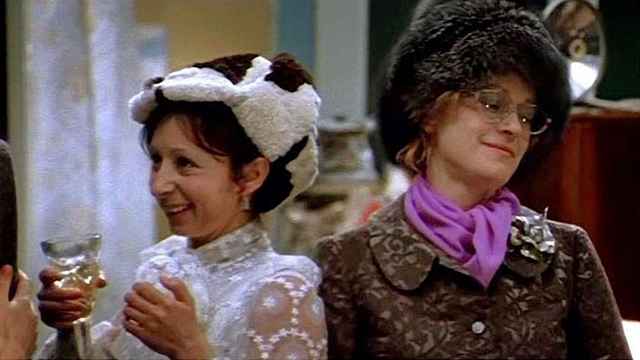Ivan Vyrypayev leaped to prominence 10 years ago when he wrote and performed his own play "Oxygen" during the first season at a then-unknown venue called Teatr.doc.
Last week it was announced that he would become the new artistic director of Praktika Theater as of April 2013, taking over the position from Eduard Boyakov at Boyakov's invitation. It is a move you have to love, in part because it's so smart to put such a talented person in such an important position, and in part because there is so much history behind it.
Vyrypayev has grown up, if I may use that term, alongside what came to be known as Russia's New Drama movement. At times he was part of the movement, at times he distanced himself from it. That in itself is interesting because New Drama was never nearly as neat a term as many would wish.
If we're going to be really honest, the notion of New Drama was fed to us as a proactive project, a slogan intended to bring into existence that which did not quite yet exist — a whole culture of new writing for the theater.
The term was the brainchild of several people, but the most active in pushing it were Boyakov, Mikhail Ugarov and Yelena Gremina. They founded a festival with that name — the New Drama Festival — in 2002, not coincidentally the same year that Teatr.doc was founded, and a new brand had been launched.
It was enormously successful, if also a somewhat exclusive clique. Right up until the festival died in 2009 because of the proverbial "artistic differences" among the founders, the notion of New Drama tended to split the theater community into groups that were vehemently against or passionately in favor. The former disliked the obscenities, the uncouth characters, the violent or controversial settings that often characterized New Drama plays. The latter loved it for the same reasons, just in reverse. They appreciated what they considered to be the truth and honesty of the new works.
Much of early New Drama was structured around documentary texts — interviews, documents and such. Famously, New Drama rejected the notion of poetry, metaphor and literature in general. Vyrypayev, on the other hand, was always a poet, often using the Bible as his guiding literary light. It was never a clean fit — Vyrypayev and New Drama — but it was advantageous to both. Each could lean on the other for support.
Shortly after Boyakov founded Praktika in Moscow in 2005, he produced the first of what would be several new Vyrypayev plays. "July," a probing, disconcerting monologue spoken from the point of view of an aging mass murderer and directed by Vyrypayev's longtime director Viktor Ryzhakov in 2006, was still another play that New Drama aficionados could get behind, but which didn't really conform to any of the New Drama doctrines. Since then, other Vyrypayev plays at Praktika have included "Comedy" in 2010 and "Illusions" in 2011. His 2004 play "Genesis-2," originally produced by Teatr.doc and the New Drama Festival, was taken into the repertory at Praktika for several years.
In short, Vyrypayev's plays have formed the backbone of Praktika's repertoire for most of the theater's life. While many of its plays have come and gone without making serious impact, Vyrypayev has always been there to support the theater's reputation and box office flow.
But Vyrypayev, who turns 38 in August, brings more to his future job than just cachet as a prominent writer. He has also made significant forays into cinema, directing and scripting his own films "Euphoria" (2006) and "Oxygen" (2008), both of which were noted for their inventiveness and individual style. Vyrypayev's next film, "Delhi Dance," is scheduled to open at the Rome film festival in October 2013, according to a press release from Praktika.
Vyrypayev's appointment continues what is now looking like a slow, but inexorable movement of New Drama participants into positions of power in Moscow theater.
Boyakov, who will relinquish his position to Vyrypayev next year, is now devoting himself full time to building the new Polytheater located in the Polytechnical Museum. Ryzhakov, who was Vyrypayev's director for many years, is now completing his second year as artistic director at the Meyerhold Center. Ugarov, who gave Vyrypayev his first serious break, is artistic director at both Teatr.doc and the Playwright and Director Center.
A Message from The Moscow Times:
Dear readers,
We are facing unprecedented challenges. Russia's Prosecutor General's Office has designated The Moscow Times as an "undesirable" organization, criminalizing our work and putting our staff at risk of prosecution. This follows our earlier unjust labeling as a "foreign agent."
These actions are direct attempts to silence independent journalism in Russia. The authorities claim our work "discredits the decisions of the Russian leadership." We see things differently: we strive to provide accurate, unbiased reporting on Russia.
We, the journalists of The Moscow Times, refuse to be silenced. But to continue our work, we need your help.
Your support, no matter how small, makes a world of difference. If you can, please support us monthly starting from just $2. It's quick to set up, and every contribution makes a significant impact.
By supporting The Moscow Times, you're defending open, independent journalism in the face of repression. Thank you for standing with us.
Remind me later.






